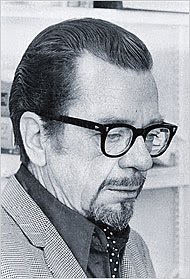A Quote by Arthur C. Clarke
The person one loves never really exists, but is a projection focused through the lens of the mind onto whatever screen it fits with least distortion.
Related Quotes
'2001' used a lot of what's called 'front projection.' You project an image onto this giant reflective screen, and the image bounces back and comes back to the lens and seems to be in the background behind the actors. The whole 'dawn of man' sequence in '2001' was projected eight-by-ten photographs of the African savannah.
The world cannot hold onto you, for the world is not sentient. The world doesn't have a mind nor does it have desires; it is only your mind's objectivisation. It is your own mind's play which imagines that an object-call it the mind or whatever-can hold onto you. It is the idea you have of who you are that is holding onto its own fearful projections as the mind. Leave all of this and remain as the pure, joyous Self.
Bacon's portraits are an interrogation on the limits of the self. Up to what degree of distortion does an individual still remain himself? To what degree of distortion does a beloved person still remain a beloved person? For how long does a cherished face growing remote through illness, through madness, through hatred, through death still remain recognizable? Where is the border beyond which a self ceases to be a self?
The television screen is the lens through which most children learn about violence. Through the magnifying power of this lens, their everyday life becomes suffused by images of shootings, family violence, gang warfare, kidnappings, and everything else that contributes to violence in our society. It shapes their experiences long before they have had the opportunity to consent to such shaping or developed the ability to cope adequately with this knowledge.
I always knew I'd be an actor. I always knew I'd at least be on a big screen somewhere. Everyone else I was watching, they were cool, but I thought that I could bring something fresh and new, even when I was really young. I didn't really know how it was going to pan out, for sure, but I always knew that one day I would be on the big screen. I had no doubts in my mind.






































